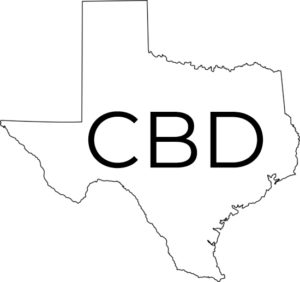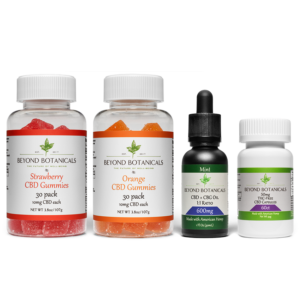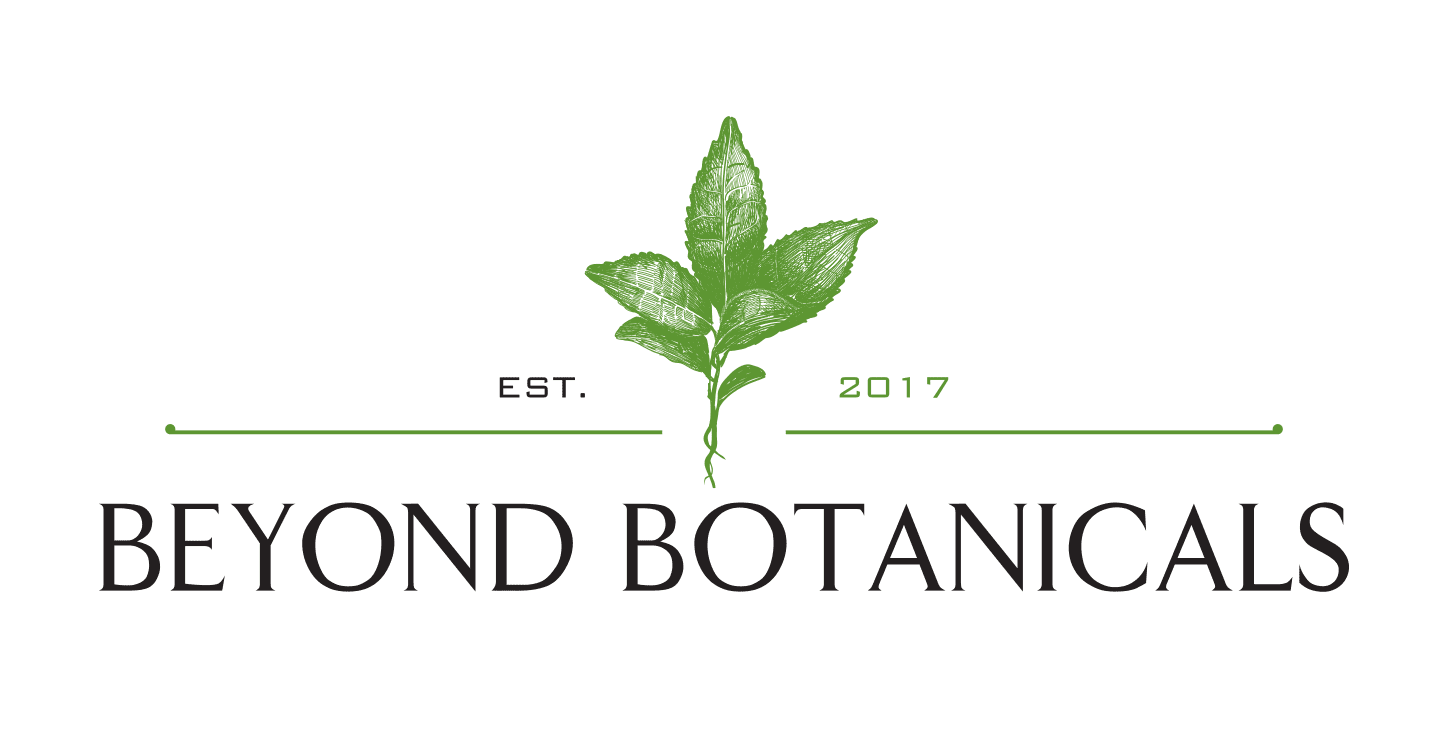With a population of over 29 million people, Texas is the second largest state by population in the USA. It’s no surprise that many people wonder whether CBD is legal in Texas, and if it’s okay for them to receive CBD products in the state.
We are now 4 years past the 2018 Federal Farm Bill, and the industry still has no clear regulatory pathway from the FDA or any other government agency. This has led to a sometimes confusing scenario in which CBD laws can vary from state to state. The law could be different immediately across a border, leading to unnecessary confusion for people who are traveling or moving.
It’s important to know what hemp products you can and cannot possess no matter where you are, so here we’re going to cover some of the most common CBD legality questions as they relate to those of you living in or visiting Texas.
The Farm Bill and Federal CBD laws
In 2018, the Federal Farm Bill made growing hemp legal. It also cleared the path for legal CBD oil in Texas, as well as across the nation. The bill specifies that hemp products which contain 0.3% delta-9 THC or less are are now allowed by the federal government.
Prior to this, any form of cannabis fell under the purview of the Controlled Substances Act. This included hemp. As a controlled substance, hemp was entirely illegal. Thankfully, the Farm Bill is a landmark legislation to which the CBD industry owes its continued existence.
Unfortunately, some states have continued to impose stricter sanctions on hemp products. This will likely continue until a newer federal standard grants CBD the same approval as supplements and cosmetics.
The 2023 Farm Bill

There is hope on the horizon for this new law – a national standard that applies to CBD products. The 2023 version of the Farm Bill is currently working its way through the House Agriculture Subcommittee, with some notable changes that apply to the hemp industry.
THC Limits
Historically, the 0.3% THC limit has been difficult to meet on maturing crops and has led to the destruction of entire harvests that were barely outside compliance. One aspect of this new bill increases the limit to either 0.7 or 1.0 percent.
The final number is up for debate, but the higher limit will allow for less risky growing operations. Ideally, this will open the industry up to more farmers without the potential for losing their entire investments on crops that are fractions of a percent above the low 0.3% limit.
Laboratory Requirements
One original provision for hemp testing was that the testing lab be DEA approved. While many labs across the country are ISO17025 certified, DEA approval is a separate, arduous, and not necessarily practical process.
There is a distinct need for standardization in hemp product testing, and a mutually agreed upon industry standard would go a long way toward higher quality products. Currently, DEA approval doesn’t do much to achieve this goal. For now, the 2023 Farm Bill hasn’t set any of these standardization goals and that may take more time – and additional legislation – to accomplish.
CBD Banking
Another challenge for struggling hemp businesses is that most banks refuse to work with them due to the stigma surrounding hemp. The 2023 Farm Bill paves the way for a remedy by explicitly encouraging banks to do business with hemp clients without fear of DEA intervention.
FDA Guidelines
The FDA has held their stance for years: CBD is not, and can not be a supplement. Because they hold this position so adamantly, many physical stores are afraid to stock and sell CBD products. Multiple industry experts have directly blamed this uncertainty for causing slower growth of the industry. More recently, it even appears to be shrinking, by as much as 80% in some areas of the country.
While it is still early and the 2023 Bill is nowhere close to finalization, there is hope that its co-sponsors will include legislation that forces the FDA to adopt a supplement standard for CBD. If it comes to fruition, this would finally allow CBD to have unrestricted growth while maintaining an established level of safety and quality.
With the Federal landscape established, let’s take a look at Texas specifically!
CBD in Texas: Is it legal?
Once the 2018 Farm Bill passed, Texas updated its state laws to mirror Federal policy. In doing this, they removed CBD from their controlled substances list. This change allows for both manufacturing and distribution in the state, and Texas is now home to many booming hemp companies and CBD businesses selling hemp derived CBD products.
Medical Marijuana in Texas: Current Legal Status
Interestingly enough, medical marijuana possession has been legal in Texas since 2015, when the Texas compassionate use act became law. Although this program has been around longer than its CBD counterpart, they aren’t terribly different. Texas has a stipulation that allows for a maximum THC concentration of 1.0% in its medical programs.
If the 2023 Farm Bill passes as planned, hemp products and compassionate use products would both be limited to the same 1 percent THC content, effectively handicapping the medical use licenses and offering them no advantages over hemp derived products.
Recreational Marijuana in Texas
Texas still has no laws in place permitting recreational use of marijuana and considers it an illegal drug, despite historically high polling support for full federal legalization and accumulating research on potential health benefits.
Is CBD Oil legal in Texas?
Finally, some positive news! CBD is in fact legal. Products with any CBD concentration are fully legal to make, sell, and own in Texas as long as they comply with the 0.3% THC limit written into the Farm Bill.
There are a variety of different CBD products which include oils, gummies, topicals, capsules, and vapes. All of these finished products are legal to have, but there are some exceptions for specific product styles which we’ll discuss further shortly.
What is Delta 8?
Delta 8 is a recently popular and highly controversial cannabinoid. It is one of the most popular hemp products for smoking and usually comes in vape cartridges, oil tinctures, or infused edibles.
CBD can undergo chemical synthesis with an acid to create Delta 8 Tetrahydrocannabinol, commonly called Delta 8 THC, or just Delta 8. It has similar intoxicating properties to Delta 9 THC, which is the classic intoxicating compound present in marijuana. Despite this, Delta 8 tends to be about 25% as strong as Delta 9, meaning 40mg of Delta 8 would impart the same effect as 10mg of Delta 9.
Because it is both hemp derived and intoxicating, it enjoys a legal gray area where it can usually be purchased over the counter as a hemp product, but it still possesses qualities that make it similar to marijuana.
Is Delta 8 legal in Texas?
Shortly after the first passage of the Farm Bill, various brands began manufacturing and selling Delta 8 products over the counter in Texas as well as across the country. It didn’t take long for individual states to begin banning the sale of Delta 8 products, saying that they never intended for anything intoxicating to be made legal.
Connecticut, where we are located, was one of the first 15 states to ban Delta 8 outright. In Texas, the story is quite different. Delta 8 was initially legal and became quite popular until the Texas Department of State Health Services issued a moratorium on it citing the same reasons – not wanting intoxicating products in the market places.
Delta 8 Lawsuits
Shortly after this ruling was issued, multiple Texas companies filed a suit against the state in hopes of obtaining an injunction to continue manufacturing and selling Delta 8 products. They were successful, and as of August 2022 Delta 8 products continue to remain on the shelves in the state of Texas.
This could change in the future, but for the time being the short answer is Yes, Delta 8 is legal here.
Is THC legal in Texas?
THC is legal in the state as long as it is in hemp products containing less than 0.3% THC by weight. Anything higher than this percentage is considered marijuana and cannot legally be made, sold, or owned in Texas.
Since Texas CBD laws explicitly state Delta 9 THC in the same way that the Farm Bill does, variants like Delta 8 remain legal while traditional Delta 9 THC is still forbidden.
Is Full Spectrum CBD legal in Texas?

Full Spectrum CBD Oil contains trace amounts of THC, but remains below the Farm Bill and state limits. This means that Full Spectrum CBD oils are legal to own in Texas. Any worthwhile product will have an assigned batch or lot number with corresponding certificates of analysis. You can review these certificates to confirm the THC concentrations
Is CBD flower legal in Texas in 2022?
Despite the legality of almost all other CBD products, hemp flower is explicitly prohibited in Texas. The state cites a lack of good regulatory framework that leaves the potential for poor quality along with health and safety risks.
Chiefly, their stated concerns revolve around bacteria, yeast, mold, and metal contamination. Testing is available for these contaminants, but when you couple these risks with the inherent health risks of inhaled products, it’s an easy case for the state to make.
Texas hemp businesses cannot process and manufacture flower for sale, and smoking hemp is not allowed for consumers either. This applies to all smokable hemp products, including loose flower and pre rolls.
Is Selling CBD legal in Texas law?
If you’re interested in starting a business in Texas that sells CBD products, you’re in luck! Texas is one of a growing number of states that have a licensing system in place for CBD businesses. Not only is there a manufacturing license, but there is also a yearly license for distributing and selling CBD products.
The yearly fees for these licenses are nominal at approximately $250. The licensing and fees exist to help the state ensure quality and transparency in its retail ecosystem. The Department of State Health Services conducts random product testing of licensed businesses to assess their cannabinoid concentrations as well as presence of contaminants, trying to keep only high quality CBD products on the market.
Other states have similar licensing systems in place. Each tends to have its own unique standards, which can make national compliance difficult. It is best to consult a knowledgeable attorney if you plan on selling nationally. That way, they can make sure your products are compliant with as many state regulations as possible.
The 2018 Farm Bill makes cannabidiol oil legal. If the 2023 Farm Bill manages to officially reclassify CBD as a supplement, then it shouldn’t take too long for national standardization of licensing, testing, and production requirements to eliminate the rest of the regulatory complexity and allow people to buy CBD oil with confidence.
Is CBD legal in Texas – 2022 Summary
All CBD products derived from industrial hemp are legal in the state except hemp flower itself. CBD oils, edibles, topicals, capsules, and vapes are all fair game as long as they meet the same standards established by the 2018 Farm Bill: hemp derived and less than 0.3% THC.
For now, hemp flower remains illegal. If the day comes to pass where Texas legalizes recreational cannabis, it’s highly likely that hemp flower will become legal at the same time, since it would be difficult to make marijuana flower legal while keeping hemp flower illegal.
From a business perspective, you can manufacture, distribute, and resell CBD products within the state as long as they are below THC limits and do not include smokable flower. You’ll need to register your business and be compliant with state requirements, and then you’re free to sell in the state as well as across the country.
If you’re looking to buy CBD oil products, you have nothing to worry about in Texas. You can legally buy and use all CBD products except flower.
Current Information
All of the information published in this article is accurate as of its publication date. We suggest checking with your local jurisdiction to confirm the most recent information as needed.
FAQ
